Today we take a look at Mt 5: 38-42. This passage states “You have heard that it was said, An eye for an eye and a tooth for a tooth. But I say to you, offer no resistance to one who is evil. When someone strikes you on your right cheek, turn the other one to him as well. If anyone wants to go to law with you over your tunic, hand him your cloak as well. Should anyone press you into service for one mile, go with him for two miles. Give to the one who asks of you, and do not turn your back on one who wants to borrow.”
Throughout these verses Jesus challenges us to transcend the natural impulse for retaliation and instead respond with love and generosity. He teaches us that rather than seeking revenge, we should not only turn the other cheek, but go the extra mile and give freely to those who we want to retaliate against. There are many opportunities to do this in our everyday lives. Whether it be trying to stay calm on the busy highway, or reaching out to someone who may have wronged you, and not only forgiving them, but going the extra mile to mend the relationship.
Reflecting on this passage I see it as a call to break the cycle of violence and respond to aggression with grace and compassion. This reading challenges us to examine our own attitudes towards conflict and to strive for a deeper, more transformative love in our interactions with others.
Hoy echamos un vistazo a Mt 5,38-42. Este pasaje dice: “Ustedes han oído que se dijo: Ojo por ojo, diente por diente; pero yo les digo que no hagan resistencia al hombre malo. Si alguno te golpea en la mejilla derecha, preséntale también la izquierda; al que te quiera demandar en juicio para quitarte la túnica, cédele también el manto. Si alguno te obliga a caminar mil pasos en su servicio, camina con él dos mil. Al que te pide, dale; y al que quiere que le prestes, no le vuelvas la espalda”.
A lo largo de estos versículos, Jesús nos desafía a trascender el impulso natural de buscar venganza y, en cambio, responder con amor y generosidad. Nos enseña que en lugar de buscar venganza, no sólo debemos presentarle la otra mejilla, sino hacer un esfuerzo adicional y dar generosamente a aquellos contra quienes queremos tomar represalias. Hay muchas oportunidades para hacer esto en nuestra vida diaria. Ya sea tratando de mantener la calma en una carretera concurrida o acercándose a alguien que puede haberte hecho daño, y no sólo perdonarlo, sino hacer un esfuerzo adicional para reparar la relación.
Al reflexionar sobre este pasaje, lo veo como un llamado a romper el ciclo de violencia y responder a la agresión con gracia y compasión. Esta lectura nos desafía a examinar nuestras propias actitudes hacia el conflicto y a luchar por un amor más profundo y transformador en nuestras interacciones con los demás.
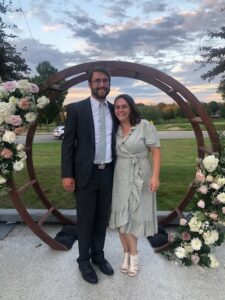 Heather Orlowski and her husband are busy parents of two little girls (ages 2 and 4). The Catholic Church holds a special place in her heart and in her entire life. She attended Catholic schools from Kindergarten through college. She graduated from Aquinas College with a degree in Elementary/Special Education. Catholic Education is very important to her and she now teaches 1st and 2nd grades at St. Therese Catholic School. In her free time, she loves creating memories with her family and watching her little girls play soccer.
Heather Orlowski and her husband are busy parents of two little girls (ages 2 and 4). The Catholic Church holds a special place in her heart and in her entire life. She attended Catholic schools from Kindergarten through college. She graduated from Aquinas College with a degree in Elementary/Special Education. Catholic Education is very important to her and she now teaches 1st and 2nd grades at St. Therese Catholic School. In her free time, she loves creating memories with her family and watching her little girls play soccer.
Feature Image Credit: Matt Collamer, unsplash.com/photos/man-holding-card-with-seeking-human-kindness-text-8UG90AYPDW4
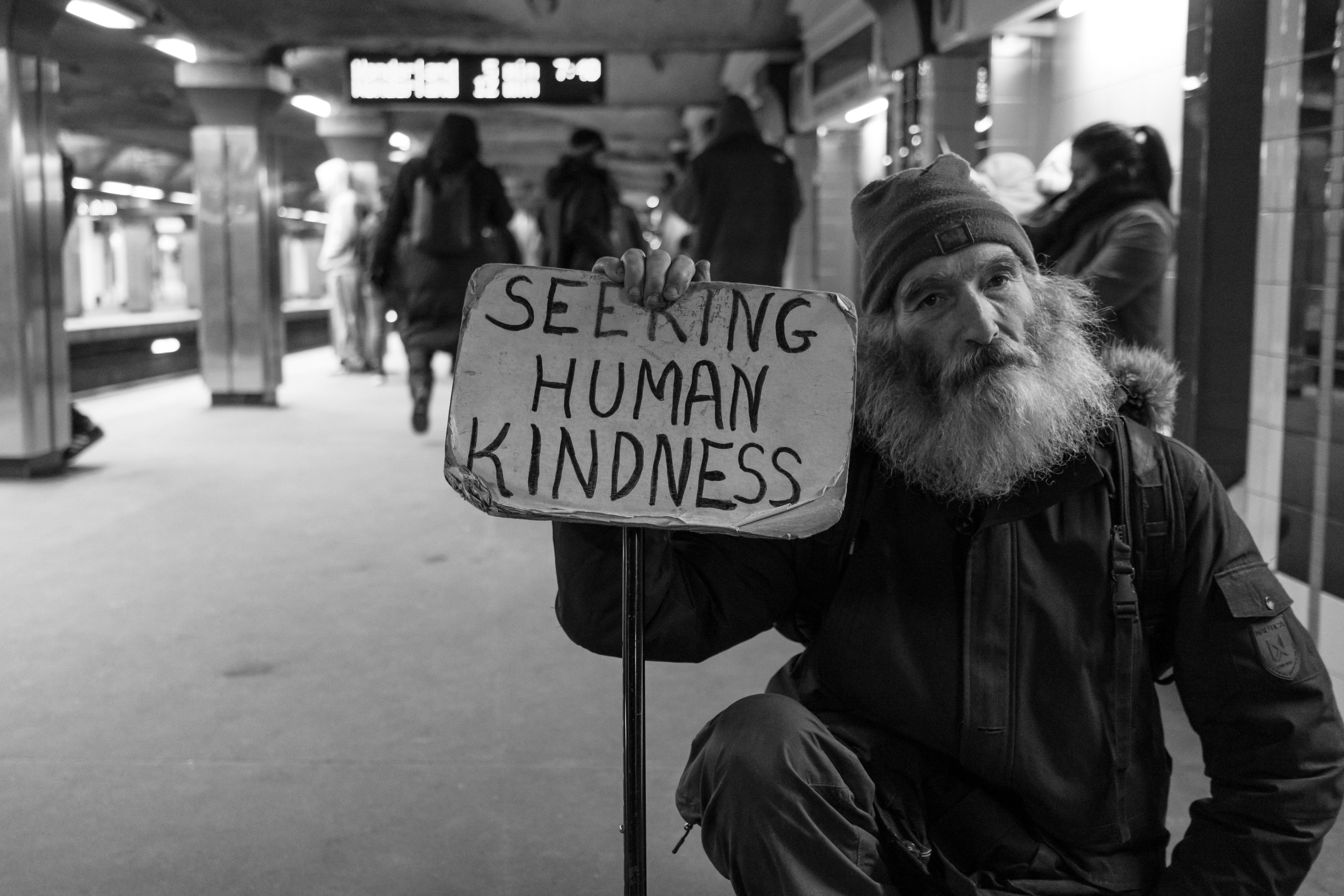

 Dr. Alexis Dallara-Marsh is a board-certified neurologist who practices in Bergen County, NJ. She is a wife to her best friend, Akeem, and a mother of two little ones on Earth and two others in heaven above.
Dr. Alexis Dallara-Marsh is a board-certified neurologist who practices in Bergen County, NJ. She is a wife to her best friend, Akeem, and a mother of two little ones on Earth and two others in heaven above.


 Merridith Frediani loves words and is delighted by good sentences. She also loves Lake Michigan, dahlias, the first sip of hot coffee in the morning, millennials, and playing Sheepshead with her husband and three kids. She writes for Catholic Mom, Diocesan.com, and her local Catholic Herald. Her first book Draw Close to Jesus: A Woman’s Guide to Adoration is available at Our Sunday Visitor and Amazon. You can learn more at
Merridith Frediani loves words and is delighted by good sentences. She also loves Lake Michigan, dahlias, the first sip of hot coffee in the morning, millennials, and playing Sheepshead with her husband and three kids. She writes for Catholic Mom, Diocesan.com, and her local Catholic Herald. Her first book Draw Close to Jesus: A Woman’s Guide to Adoration is available at Our Sunday Visitor and Amazon. You can learn more at 

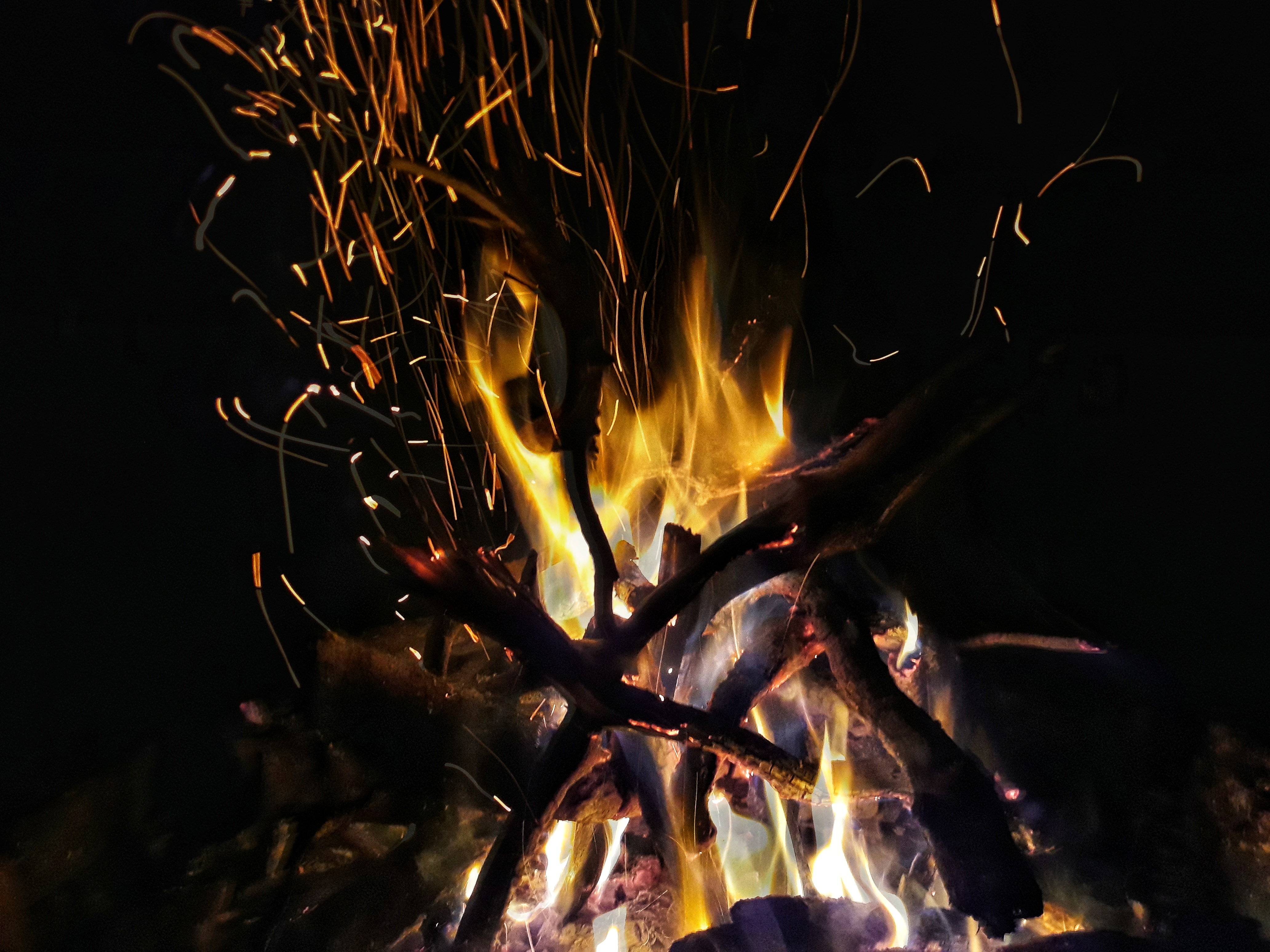
 David Dashiell is a freelance author and editor in Nashville, Tennessee. He has a master’s degree in theology from Franciscan University, and is the editor of the anthology
David Dashiell is a freelance author and editor in Nashville, Tennessee. He has a master’s degree in theology from Franciscan University, and is the editor of the anthology 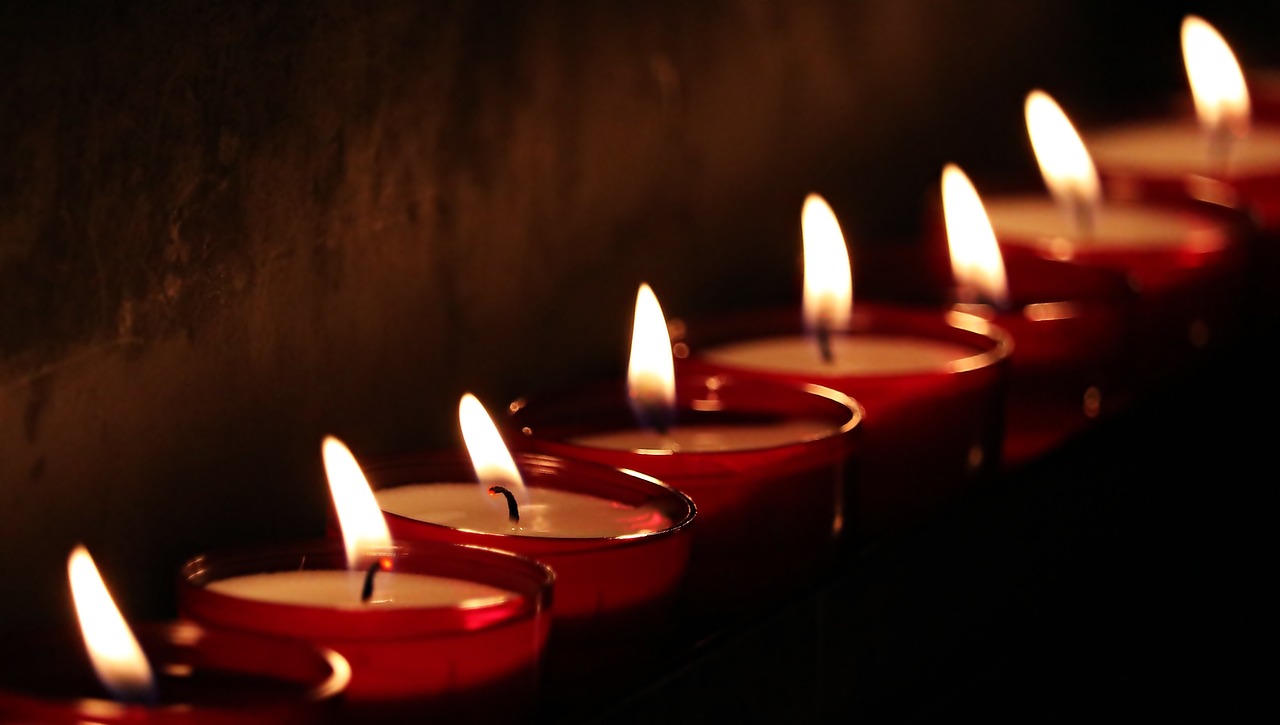
 Elizabeth Tomlin is the author of Joyful Momentum: Building and Sustaining Vibrant Women’s Groups and contributing author to the Ave Prayer Book for Catholic Mothers. She is General Counsel for the Archdiocese for the Military Services, USA. Elizabeth is an Army wife and mother of three and currently lives in the DC area. She blogs at
Elizabeth Tomlin is the author of Joyful Momentum: Building and Sustaining Vibrant Women’s Groups and contributing author to the Ave Prayer Book for Catholic Mothers. She is General Counsel for the Archdiocese for the Military Services, USA. Elizabeth is an Army wife and mother of three and currently lives in the DC area. She blogs at 

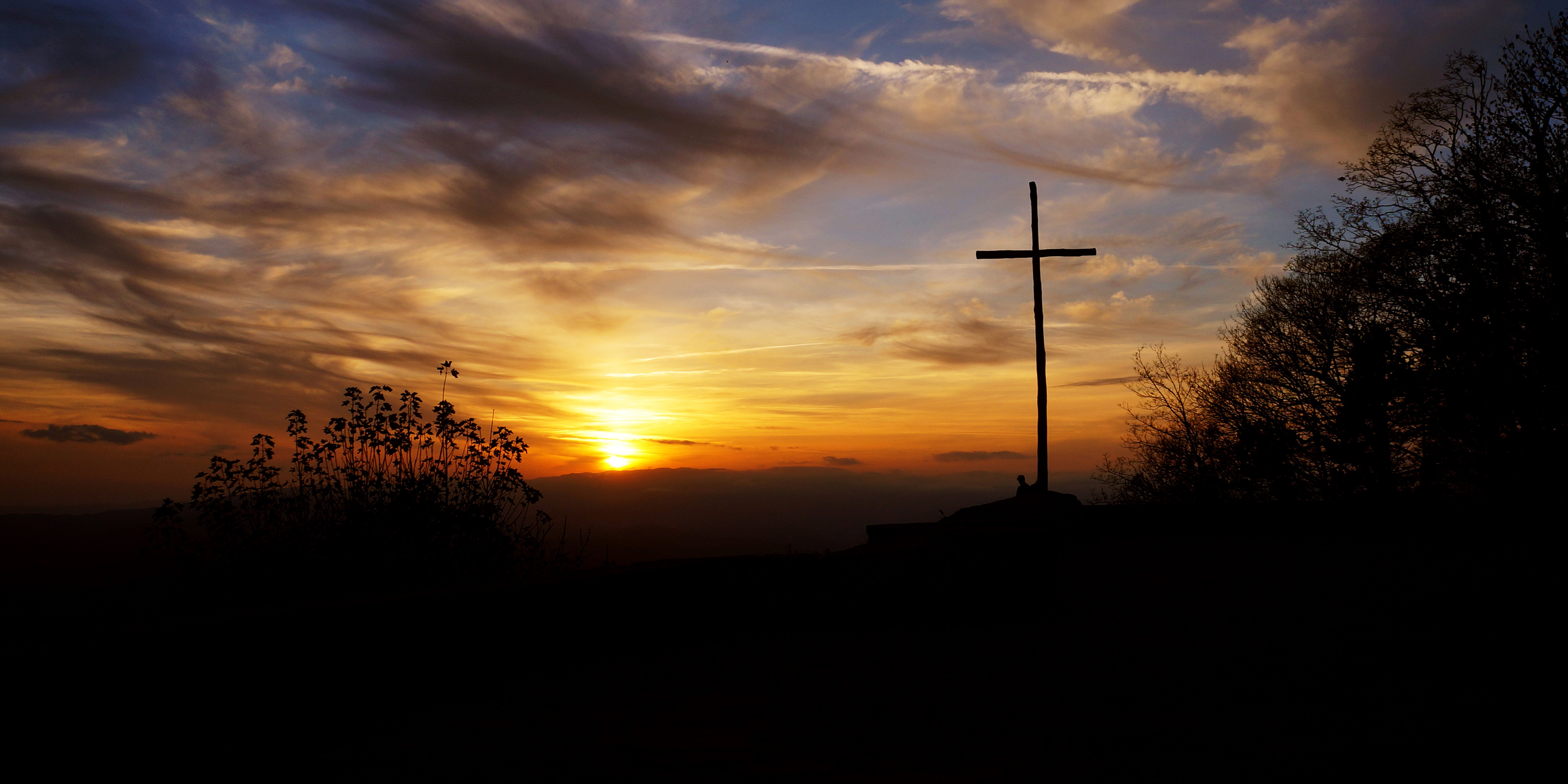
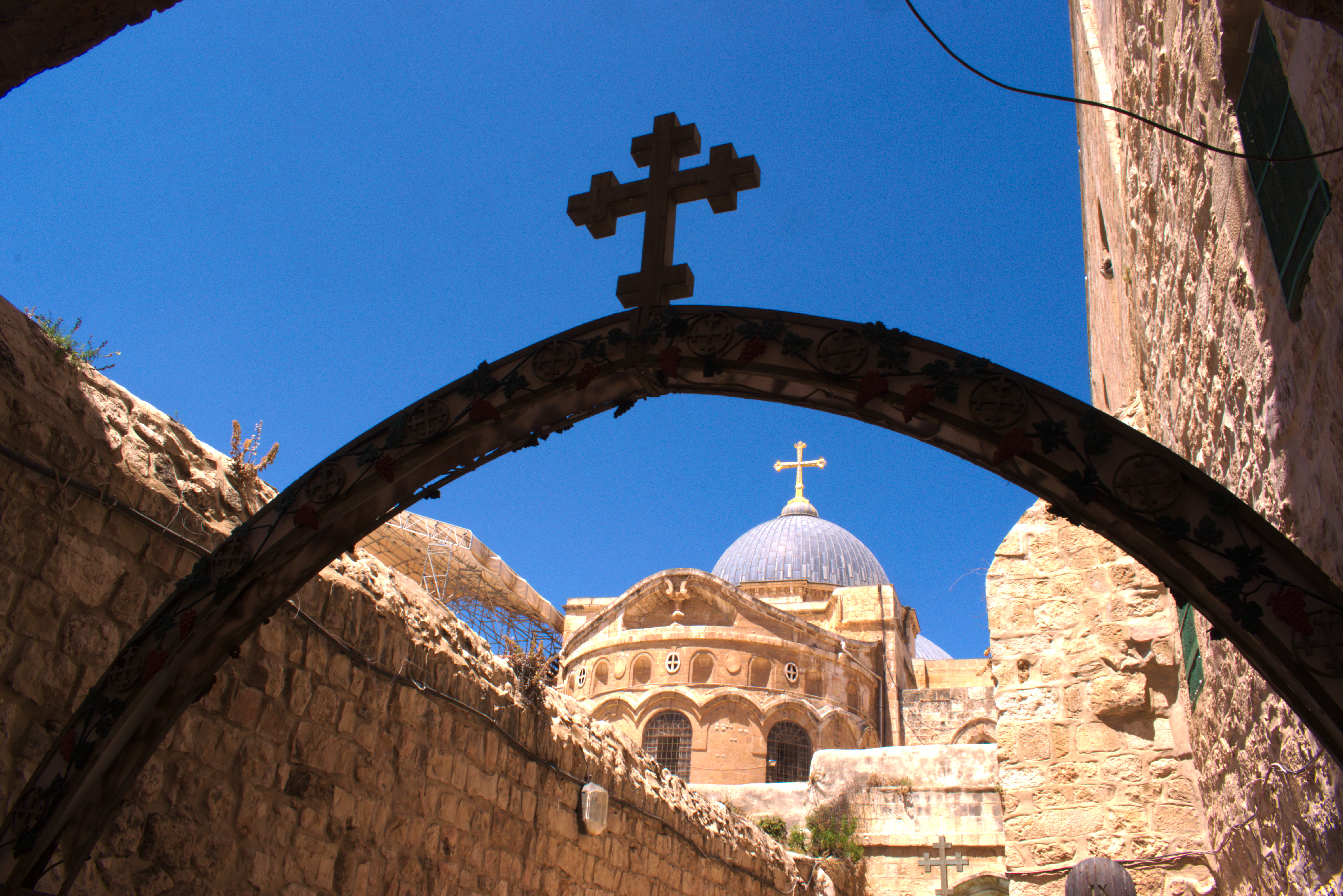
 Allison Gingras (
Allison Gingras ( 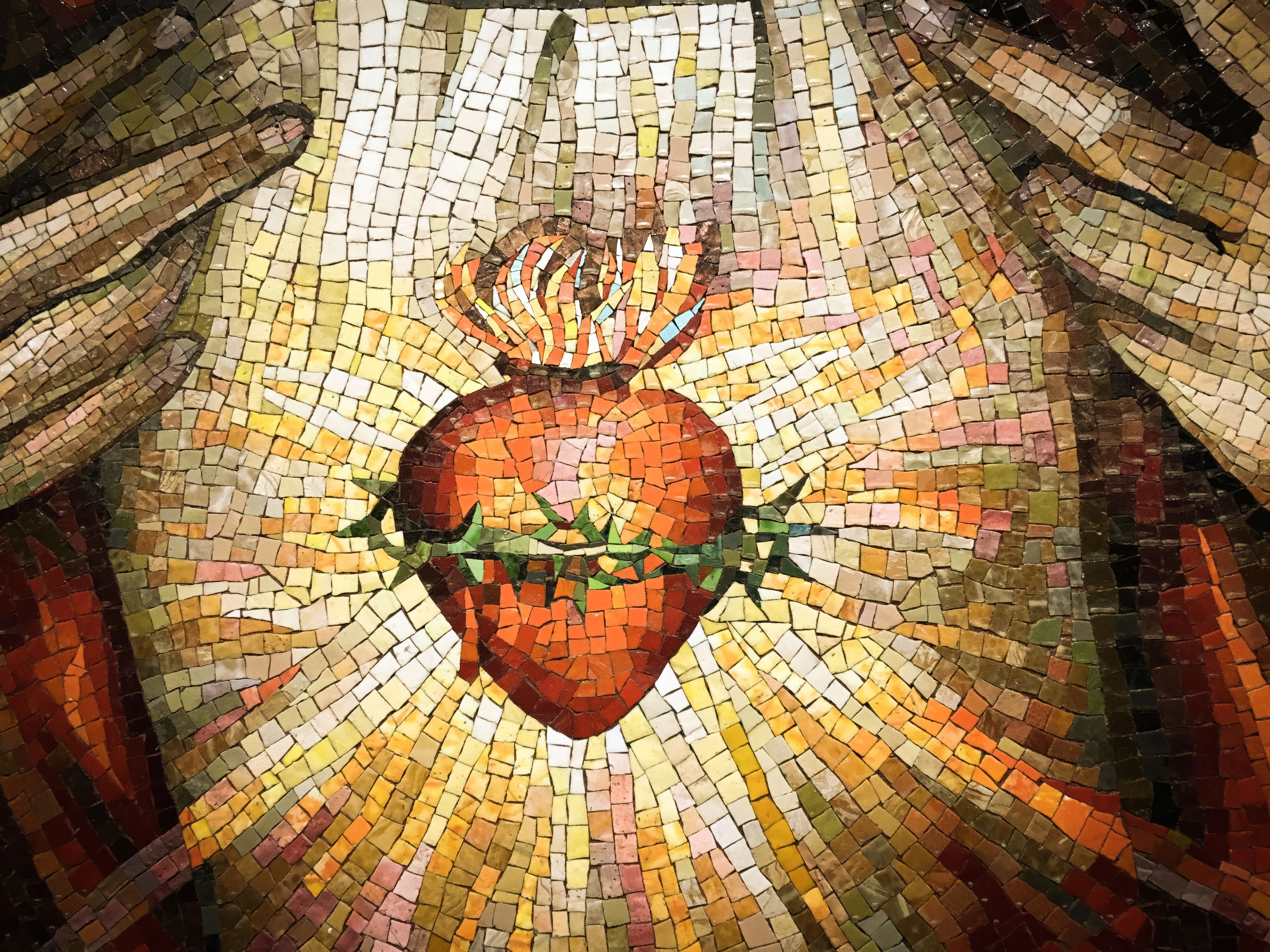
 Kathryn Mulderink, MA, is married to Robert, Station Manager for Holy Family Radio. Together they have seven children (including Father Rob), and eight grandchildren. She is President of the local community of Secular Discalced Carmelites and has published five books and many articles. Over the last 30 years, she has worked as a teacher, headmistress, catechist, Pastoral Associate, and DRE, and as a writer and voice talent for Catholic Radio. Currently, she serves the Church by writing and speaking, and by collaborating with various parishes and to lead others to encounter Christ and engage their faith. Her website is
Kathryn Mulderink, MA, is married to Robert, Station Manager for Holy Family Radio. Together they have seven children (including Father Rob), and eight grandchildren. She is President of the local community of Secular Discalced Carmelites and has published five books and many articles. Over the last 30 years, she has worked as a teacher, headmistress, catechist, Pastoral Associate, and DRE, and as a writer and voice talent for Catholic Radio. Currently, she serves the Church by writing and speaking, and by collaborating with various parishes and to lead others to encounter Christ and engage their faith. Her website is 
 Kate Taliaferro is an Air Force wife and mother. She is blessed to be able to homeschool, bake bread and fold endless piles of laundry. When not planning a school day, writing a blog post or cooking pasta, Kate can be found curled up with a book or working with some kind of fiber craft. Kate blogs at
Kate Taliaferro is an Air Force wife and mother. She is blessed to be able to homeschool, bake bread and fold endless piles of laundry. When not planning a school day, writing a blog post or cooking pasta, Kate can be found curled up with a book or working with some kind of fiber craft. Kate blogs at